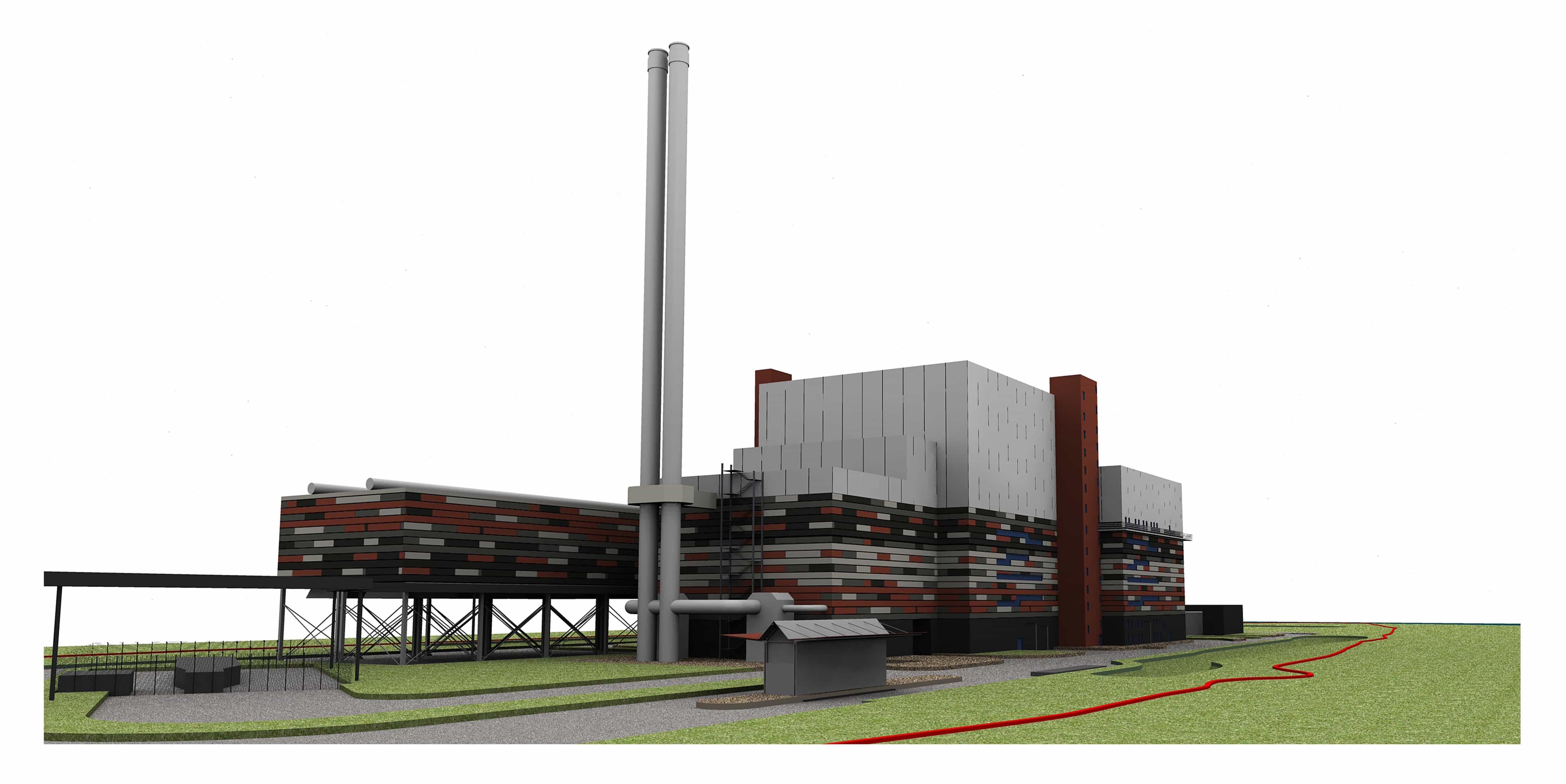‘Flawed assumptions’ or the end of ‘giant’ plants?
In February, the Secretary of State for Business, Energy and Industrial Strategy (BEIS), Kwasi Kwarteng, turned down Wheelabrator’s application for a second energy from waste plant in Kent. Joshua Doherty examines what was said and looks at the possible future implications of the decision.
Although granting planning permission to increase the capacity of Wheelabrator’s existing Kemsley plant (K3) by a further 107,000 tonnes per year to a maximum of 657,000 tonnes, the Secretary of State for Business turned down the company’s bid to build a new facility, called Wheelabrator Kemsley North (WKN). He did this following advice from the Planning Inspectorate (see letsrecycle.com story).
The decision has sparked a lively debate in the waste sector, with some saying it was based on “flawed assumptions”, while others saying it “gives a vote of confidence in the local waste plan-making system” and that it “spells the end for ‘national’ giant incinerators”.

Above: Impression of the proposed second Kemsley EfW plant rejected by the Secretary of State for Business
Examiner
As part of the application, the examining authority (ExA), planning inspector, Grahame Kean, conducted an examination into the application submitted in September 2019.

Kwasi Kwarteng was appointed Secretary of State at the Department of Business, Energy and Industrial Strategy in January 2021
He found the applicant had “not provided robust arguments to support the new plant and that there is no proven need for it to be located in Kent”.
The ExA noted that the new plant would be in conflict with the National Planning Policy for Waste because it would “put at risk” the achievement of revised recycling and composting targets in the Kent Minerals and Waste Local Plan.
The Secretary of State “sees no reason to disagree with the ExA’s conclusions in this matter”, the decision notice said.
‘Risk’ to recycling
Alan Potter, partner at BPP Consulting, which advised Kent county council, said the “entire decision” was based on the point that the plant posed a risk to recycling rates.
Mr Potter said: “The council had initiated a review of their waste local plan and this showed that the additional capacity was no longer needed. The inspector that considered the Plan Review in 2020 accepted the county council analysis of the data showing there was already more than enough capacity and the plant wasn’t needed in Kent”.
Application
Mr Potter added that the decision was also important as Kent county council felt it should be able to decide on the new plant. He said the application for a new plant should have gone before the council, and not as part of the same application to increase the capacity of K3 as part of a development consent order (DCO).
“The Secretary of State was involved in this application because the proposals included increasing the capacity at the existing K3 plant such that it exceeded that 50MW threshold for nationally significant infrastructure projects. The additional WKN plant was put together in the same application simply because it was to be built on land next door. The county council argued that the application for the entirely separate WKN plant should be determined by it as the Waste Planning Authority for Kent, and assessed against the reviewed Kent Minerals & Waste Local Plan.
“The fact that Secretary of State turned down the application gives a vote of confidence in the local waste plan-making system”.
DCO
The decision to apply for a DCO for the new plant, implying it is of national interest, was also highlighted by one waste sector expert.
They told letsrecycle.com that any appeal by Wheelabrator over the Kent ruling needed to be seen against a background of there no longer being a national need for large new incinerators.
” Plants on the M62 are already pulling up material from the south which will make any Wheelabrator case for its extra Kent plant even harder to make”
“When there was a huge capacity gap you could argue the case on a national basis and get the local decision overturned. Now it is unreasonable to do that and I cannot see an appeal by Wheelabrator being successful. There is so much capacity available, even if a lot of this is now on the M62 corridor, or has already been granted planning permission. You must remember that waste can travel and plants on the M62 are already pulling up material from the south which will make any Wheelabrator case for its extra Kent plant even harder to make.”
Emissions
Another point in which the Secretary of State had “no reasons to disagree with the ExA’s conclusions” was on carbon emissions.
The document says Wheelabrator predicted the plant would have a net reduction of 232,000 tonnes of carbon dioxide per year of operation when compared to landfill and traditional electricity generation.
The examiner noted that these reductions in emissions are based on “some uncertainties” but overall would be of benefit.
Kent county and Swale borough councils queried the figures provided by the applicant because there were “too many unknowns in the assessments” and said it would actually reduce recycling instead.
The ExA says “given the uncertainties” in the applicant’s assessment of carbon benefits, the matter should “carry little weight in the assessment”.
He added that as far as the possibility of waste being diverted from landfill to fuel, the projects would actually “divert a significant proportion of waste from recycling rather than landfill”.
The ExA added that, taken together, “neither project is particularly energy efficient”. However, the ExA goes on to say that WK3 project provides the greater benefit as a result of its better Combined Heat and Power performance.
Heat
On the subject of combined heat and power, Mr Potter added: “EfW operators really need to demonstrate future plants will deliver heat as well as power. The fact that the extension to the K3 plant allowed for this was an important factor in it being consented. Even though EfW plants are heat enabled, too few of them actually deliver heat. This should be standard practice as 21st century technology”.
‘Useful’
Looking forward, Paul Frith, director of Frith Resource Management which provides modelling and other services to the waste sector, said the decision provides a “useful” context on the role of EfW in the UK, adding that it “should be recognised” that as the UK continues to decarbonise the grid, EfW becomes less green year-on-year.
Mr Frith said: “For new developments it is important that they do more than make the turbine ‘CHP ready’; operators should also actively develop opportunities for utilising heat and also consider carbon capture utilisation and storage (CCUS) options. The judgement on the need for EfW capacity lies between avoiding the need for landfill, notably of degradable wastes, and not inhibiting achievement of the Government recycling targets.
“Moreover, we don’t want to reach the 2030s and only be left with an accounting trick of including incinerator bottom ash recycling in order to hit the 65% target, this is downcycling and limited resource recovery compared to other recycling options.”
‘Flawed assumptions’
Taking a stance against the decision by the Secretary of State is executive director of the Environmental Services Association, Jacob Hayler, who said Kwasi Kwarteng’s decision was based on “flawed assumptions”. The association represents most of the operators of energy from waste plants including Wheelabrator.
Mr Hayler pointed to a “capacity gap” in the South East of England, which he says is “remaining heavily reliant on residual waste exports and landfill as a result”.
Mr Hayler said: “Diverting residual waste material from landfill into energy recovery across the region would result in a significant carbon saving over continued landfill in the short-term, while in the longer term, the pathway to Net Zero for our sector would likely see plants such as this become more energy-efficient and less carbon-intensive, through the removal of plastics from the residual waste stream and carbon capture.
“In light of the regional residual waste treatment capacity gap, concerns about competition with recycling are ill-founded and do not reflect the complex drivers of recycling performance and behaviour, which the government is attempting to address through its Resources and Waste Strategy.”
Timing
The decision document also states that the examiner’s report refers to the Climate Change Committee’s (CCC) 2020 ‘Progress Report’ which, according to the document “expresses concerns about the proliferation of energy from waste plants because of its competition with recycling and seeks mechanisms to reduce carbon emissions from those plants”.
Adrian Judge, director of consultancy firm Tolvik, said that if Wheelabrator was to submit the application now, it would have been able to approach the application differently.

The CCC said in December 2020 that EfW emissions should be ‘constrained’ by policies on waste reduction
“The application went into the government before the Committee on Climate Change’s budget in December, which set out a number of policy recommendations for the waste sector, including EfW plants,” he explained.
Mr Judge added: “So in a sense, the applicant was not ideally positioned to respond to things they hadn’t seen emerging, in a way that if they were doing an application starting today it would no doubt be addressed in a different way”.
Politics
Mr Judge also referred to the local politics of the decision, saying the involvement of the local county council in the process was “particularly high”.
“Objectors to any other schemes will be able to point to this and it will give them some more ammunition”
He said: “In summary, I think it is an issue of politics and timing, but then notwithstanding that, I think the question is: ‘Is this fundamental change?’ Clearly objectors to any other schemes will be able to point to this and it will give them some more ammunition to why such a scheme should perhaps not be consented. And I think that that will certainly tip the balance in some locations where perhaps the decision making might be quite marginal in the first place anyway.
“I think, though, that the statements that were made by the inspector and the secretary of state raises some questions which actually for which there are no clear answers, certainly there would be grounds for some parties, like trade associations to engage in discussions with government about what is really meant by the decision.”
Most of those spoken to for this article were in agreement that the decision marks the first time that the secretary of state has turned down a plant in this way, and say that while it’s full impact is yet to be seen, it will undoubtedly have an impact on future applications.
The post Implications of the Wheelabrator Kent EfW rejection appeared first on letsrecycle.com.
Source: letsrecycle.com Waste Managment




